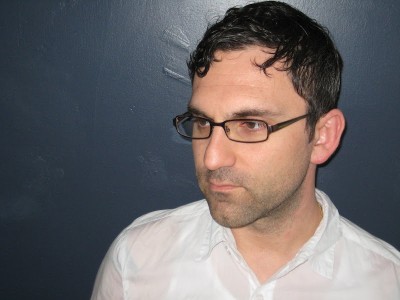You were born in Iowa and raised in NW Ohio. Would you consider yourself a Midwest poet?
I don’t call myself a Midwestern poet because I left. When I think of “poets of place,” I think of Gary Snyder, who built his home in northern California in the late 60s, and has lived and written from/of that place for decades. I consider myself a semi-nomadic poet with strong Midwestern sensibilities and memories. Now that I live in Seattle, I align myself with the rich heritage of Pacific Rim poets on both sides of the ocean, stretching back thousands of years.
You wrote a poem several years ago, “How We Embezzle Moments,” which I greatly admire, as it seems to speak to the necessity of such “embezzlement” in a writer’s life.
Thank you. Yes, I think writers often operate in the mode of “catch as catch can,” in between orders at the coffee shop, or on night watch at a sanitarium (Ken Kesey). In my case, it was on breaks at factories, then later between meetings in very corporate surroundings. While corporate thieves embezzle our parents’ retirement money, we embezzle the most valuable currency of all…Time.
Also, a small digression worth going on: Seattle Councilman Nick Licata, the guy who instituted the practice of beginning his City Council Meetings with a poem, is from Ohio, and went to my alma mater! So, getting to read to that audience in 2007 was a very “Ohio” moment.
How do your strengths as a poet/wordsmith and as a musician connect? Could you be one without the other?
They’re surprisingly disconnected. I often joke that songs are where I get to channel all my bad poetry! I think of poetry as a literary and visual art, while my music isn’t visual, and isn’t very literary. I think I could be just a poet, or just a songwriter, but it just so happens that I’m both. The nice thing is that I can swing from one to the other if I’m feeling burned out, and recharge for the next pendulum swing.
I think the places where they intersect for me are in rhythm and imagery. I like to think that my song lyrics are more image-rich than average, and I work hard to give my poetry and prose good rhythm and music.
What are you working on now? How has your Seattle experience influenced your newer work?
I’m mainly focused on submitting poetry right now; just trying to get my work in front of as many eyeballs as possible. Truthfully, I’ve been working a lot more on the music side of late; writing songs, recording, performing.
Seattle has influenced my work by bringing me into that “Pacific Rim” tradition in a more palpable way. I’ve always been drawn to the whole “East meets West” thing, but now it’s all around me every day, and I’m synthesizing that vibe with my Midwestern vibe. Can’t wait to see how that plays out!
I noticed that you have a very sharp editorial eye. Do you ever aspire to curate, compile, coach, or edit the efforts of others in the field?
Yes, I enjoy editing. When the poet Scott Ezell (a truly nomadic Pacific Rim writer) was writing his book Petroglyph Americana, I had the honor of providing feedback on a draft. The final product is amazing, by the way.
On the other hand, I made a conscious decision not to pursue the academic track with my writing, where I would’ve likely done editing, teaching, and coaching on a more regular basis. So, I guess my desire to work with others in the field is small in scale.
I have heard people who are not from Ohio tell me that Ohio is a very “generic” form of America, whatever that means. Many submitters to Penduline, though, wrote to say that they were delighted, thrilled, tickled pink to see an Ohio-themed issue being published. As part of the “Ohio diaspora,” how do you view the grouping and promotion like this of Ohio writings and writers?
I think the many who view Ohio as “generic” do so because the state has represented itself as “The Heartland,” whatever that means. Also, TV and movies seem to always pick Ohio as the all-American setting. Remember that Family Ties was set in Ohio? It has become, in the nation’s consciousness, the place where nothing ever happens, yet the place where anything could happen (like Terry Thompson’s exotic animal debacle in Zanesville).
I heard that TV journalists who want “non-regional” accents are encouraged to study the speech of people in Northwest Ohio where I grew up. In accent, we were supposedly “generic,” although I don’t know if I believe that.
Ohio is a tricky state that defies a lot of stereotypical perceptions. It’s one of the most populous states, with half a dozen big urban areas. It has pockets of very progressive politics, and always has. There are quite a few progressive universities fueling a lot of creative output. And, frankly, a there’s a lot of whackos in the mix, too!
I’m happy to see a concentration of Ohio writers and subject matter because I feel like the rest of the nation tends to write Ohio off as that fictional, generic middle ground that doesn’t exist. In one of my poems about Ohio, I wrote: “Vapor trails race straight across / a land skipped over / and folks who don’t give a shit.” That sums it, I think. The artists of Ohio, or those whom Ohio has touched, keep producing great work whether “the coasts” are paying attention or not.



